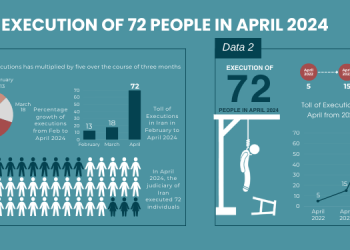Iran’s judiciary created a very short list of lawyers, 20 so far, who will be allowed to handle political and national security cases.
Iranian state media said judiciary chief Sadeq Amoli-Larijani approved the exclusive list of defense lawyers for national security cases on the basis of Iranian Penal Code Article 48, adopted in 2013.
There are no prominent human rights lawyers on the list, or even individuals with independently acknowledged records defending detainees in such politically charged cases.
Tehran lawyer Amir Raeisian on Saturday tweeted that authorities told him and his colleagues that if their name is not on the list, they cannot represent anyone charged with political or security crimes. His name is not on the list. Raeisian has defended political detainees that include activist Arash Sadeghi and award-winning filmmaker Keyvan Karimi.
One of the state-approved lawyers, is Abdolreza Mohabati, who served as deputy to Tehran’s then-chief prosecutor Saeed Mortazavi in 2009. Mohabati and Mortazavi presided over a harsh government crackdown on weeks of mass opposition protests in Tehran in the aftermath of Mahmoud Ahmadinejad’s disputed 2009 re-election win.
Hassan Tardast, is another state-vetted lawyer by Iran’s judiciary. He says he signed the death sentences of over 1,000 people.
He also sent Reyhaneh Jabbari to the gallows for defending her dignity against an intel agent who intended to rape her.
A number of Iran based lawyers and human rights advocates spoke out against the judiciary’s move. Some also criticized the government list for not including any women or advocates for the legal defense of political and social activists.
In an interview with CHRI published on Monday, Iran-based lawyer and human rights advocate Nasrin Sotoudeh said if the law that enabled the creation of the list is not revoked, “a number of lawyers have declared their readiness to stage a sit-in protest.”
Nasrin Sotoudeh continued that by presenting the list of twenty people, the defense rights that so far was halted to the political and security detainees will be eliminated, and the implementation of this note is a goodbye to the law bureau in Iran.
Another lawyer Hossein Ahmadi Niaz, also spoke out against the list of vetted defense lawyers saying: “this is contrary to Article 35 of the Constitution because it eliminates the right to choose a lawyer and the defendants can no longer be represented by a lawyer of their choice so his right to be represented is literally violated.”
International law guarantees anyone accused of a crime access to a lawyer of their choice at all stages of criminal proceedings, including during the investigation, the pretrial proceedings, and during the trial itself. Announcing a list of approved lawyers based on non-transparent criteria is just the latest example of judiciary’s interference with detainees’ rights.
The right to access a lawyer of your choosing is one of the most important safeguards against abuses in detention. Yet like other rights, Iran’s judiciary is busy eroding laws designed to protect Iranian citizens.











